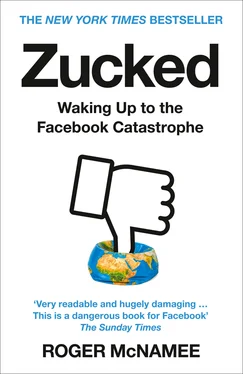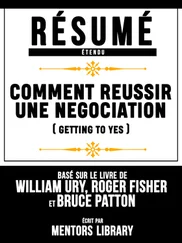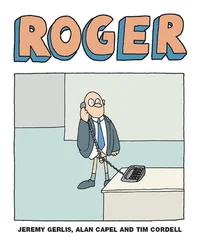Ann and I graduated together, she a very young PhD, me an old undergraduate. She received a coveted tenure-track position at Swarthmore College, outside of Philadelphia. I could not find a job in Philadelphia, so I enrolled at the Tuck School of Business at Dartmouth, in Hanover, New Hampshire. So began a twenty-one-year interstate commute.
My first job after business school was at T. Rowe Price, in Baltimore, Maryland. It was a lot closer to Philadelphia than Hanover, but still too far to commute every day. That’s when I got hit by two game-changing pieces of good luck: my start date and my coverage group. My career began on the first day of the bull market of 1982, and they asked me to analyze technology stocks. In those days, there were no tech-only funds. T. Rowe Price was the leader in the emerging growth category of mutual funds, which meant they focused on technology more than anyone. I might not be able to make the first personal organizer, I reasoned, but I would be able to invest in it when it came along.
In investing, they say that timing is everything. By assigning me to cover tech on the first day of an epic bull market, T. Rowe Price basically put me in a position where I had a tailwind for my entire career. I can’t be certain that every good thing in my career resulted from that starting condition, but I can’t rule it out either. It was a bull market, so most stocks were going up. In the early days, I just had to produce reports that gave the portfolio managers confidence in my judgment. I did not have a standard pedigree for an analyst, so I decided to see if I could adapt the job to leverage my strengths.
I became an analyst by training, a nerd who gets paid to understand the technology industry. When my career started, most analysts focused primarily on financial statements, but I changed the formula. I have been successful due to an ability to understand products, financial statements, and trends, as well as to judge people. I think of it as real-time anthropology, the study of how humans and technology evolve and interact. I spend most of my time trying to understand the present so I can imagine what might happen in the future. From any position on the chessboard, there are only a limited number of moves. If you understand that in advance and study the possibilities, you will be better prepared to make good choices each time something happens. Despite what people tell you, the technology world does not actually change that much. It follows relatively predictable patterns. Major waves of technology last at least a decade, so the important thing is to recognize when an old cycle is ending and when a new one is starting. As my partner John Powell likes to say, sometimes you can see which body is tied to the railroad tracks before you can see who is driving the train.
The personal computer business started to take off in 1985, and I noticed two things: everyone was my age, and they convened at least monthly in a different city for a conference or trade show. I persuaded my boss to let me join the caravan. Almost immediately I had a stroke of good luck. I was at a conference in Florida when I noticed two guys unloading guitars and amps from the back of a Ford Taurus. Since all guests at the hotel were part of the conference, I asked if there was a jam session I could join. There was. It turns out that the leaders of the PC industry didn’t go out to bars. They rented instruments and played music. When I got to my first jam session, I discovered I had an indispensable skill. Thanks to many years of gigs in bands and bars, I knew a couple hundred songs from beginning to end. No one else knew more than a handful. This really mattered because the other players included the CEO of a major software company, the head of R&D from Apple, and several other industry big shots. Microsoft cofounder Paul Allen played with us from time to time, but only on songs written by Jimi Hendrix. He could shred. Suddenly, I was part of the industry’s social fabric. It is hard to imagine this happening in any other industry, but I was carving my own path.
My next key innovation related to earnings models. Traditional analysts used spreadsheets to forecast earnings, but spreadsheets tend to smooth everything. In tech, where success is binary, hot products always beat the forecast, and products that are not hot always fall short. I didn’t need to worry about earnings models. I just needed to figure out which products were going to be hot. Forecasting products was not easy, but I did not need to be perfect. As with the two guys being chased by a bear, I only needed to do it better than the other guy.
I got my first chance to manage a portfolio in late 1985. I was asked to run the technology sector of one of the firm’s flagship funds; tech represented about 40 percent of the fund. It was the largest tech portfolio in the country at the time, so it was a big promotion and an amazing opportunity. I had been watching portfolio managers for three years, but that did not really prepare me. Portfolio management is a game played with real money. Everyone makes mistakes. What differentiates great portfolio managers is their ability to recognize mistakes early and correct them. Portfolio managers learn by trial and error, with lots of errors. The key is to have more money invested in your good ideas than your bad ones.
T. Rowe launched a pure-play Science & Technology Fund, managed by two of my peers, on September 30, 1987. Nineteen days later, the stock market crashed. Every mutual fund got crushed, and Science & Tech was down 31 percent after only a month in business. While the number was terrible, it was actually better than competitors because the portfolio managers had invested only half their capital when the market collapsed. In the middle of 1988, with the viability of the fund in doubt, the firm reassigned the two managers and asked me to take over. I agreed to do so on one condition: I would run the fund my way. I told my bosses that I intended to be aggressive.
Another piece of amazing luck hit me when T. Rowe Price decided to create a growth-stage venture fund. I was already paying attention to private companies, because in those days, the competition in tech came from startups, not established companies. Over the next few years, I led three key growth-stage venture investments: Electronic Arts, Sybase, and Radius. The lead venture investor in all three companies was Kleiner Perkins Caufield & Byers, one of the leading venture capital firms in Silicon Valley. All three went public relatively quickly, making me popular both at T. Rowe Price and Kleiner Perkins. My primary contact at Kleiner Perkins was a young venture capitalist named John Doerr, whose biggest successes to that point had been Sun Microsystems, Compaq Computer, and Lotus Development. Later, John would be the lead investor in Netscape, Amazon, and Google.
My strategy with the Science & Technology Fund was to focus entirely on emerging companies in the personal computer, semiconductor, and database software industries. I ignored all the established companies, a decision that gave the fund a gigantic advantage. From its launch through the middle of 1991, a period that included the 1987 crash and a second mini-crash in the summer of 1990, the fund achieved a 17 percent per annum return, against 9 percent for the S&P 500 and 6 percent for the technology index. That was when I left T. Rowe Price with John Powell to launch Integral Capital Partners, the first institutional fund to combine public market investments with growth-stage venture capital. We created the fund in partnership with Kleiner Perkins—with John Doerr as our venture capitalist—and Morgan Stanley. Our investors were the people who know us best, the founders and executives of the leading tech companies of that era.
Integral had a charmed run. Being inside the offices of Kleiner Perkins during the nineties meant we were at ground zero for the internet revolution. I was there the day that Marc Andreessen made his presentation for the company that became Netscape, when Jeff Bezos did the same for Amazon, and when Larry Page and Sergey Brin pitched Google. I did not imagine then how big the internet would become, but it did not take long to grasp its transformational nature. The internet would democratize access to information, with benefits to all. Idealism ruled. In 1997, Martha Stewart came in with her home-decorating business, which, thanks to an investment by Kleiner Perkins, soon went public as an internet stock, which seemed insane to me. I was convinced that a mania had begun for dot-coms, embodied in the Pets.com sock puppet and the slapping of a little “e” on the front of a company’s name or a “.com” at the end. I knew that when the bubble burst, there would be a crash that would kill Integral if we did not do something radical.
Читать дальше






